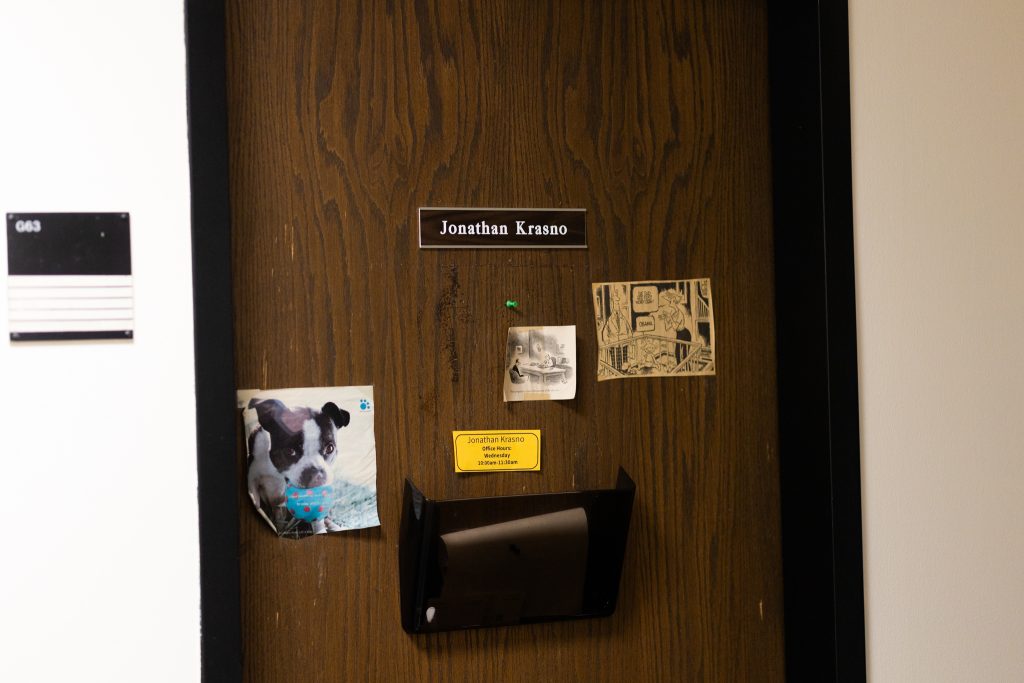As campaign season begins to heat up, Jonathan Krasno, a professor of political science and the chair of the Faculty Senate’s Executive Committee, has made a name for himself as an expert witness in campaign finance and redistricting cases.
Most recently, Krasno testified for the Federal Election Commission (FEC) in their defense against the National Republican Senatorial Committee, which aimed to overturn limits on coordinated expenditures — when a person who wants to support a specific candidate can donate unlimited amounts of money to their party, which can then fund a specific campaign. In this way, large donors can back candidates indirectly, even if not allowed to directly donate.
“When I was deposed, this was just after Kevin McCarthy had lost his job as Republican speaker and the line was, well, if he’d been able to direct party money more effectively, he could have prevented the revolt against him,” Krasno said. “But that’s not the way the system’s supposed to work, right? You’re not supposed to be able to use money as a cudgel to force people to do stuff. That’s in fact, exactly what they say you’re not supposed to do.”
Krasno’s experience with political science began over 30 years ago when he and a friend read an article that argued money spent on incumbents’ campaigns had no impact on the vote and weren’t convinced. They found the methods of analysis problematic and decided to do their research to figure out why. In 1993, Krasno and his colleague published their findings, arguing that money spent on incumbents’ campaigns does affect the number of votes the candidate earns. In what Krasno called a “throwaway line” at the end, they stated that their research meant that campaign finance laws affect both incumbents and challengers.
“It didn’t seem like a lot to us,” he said, “but within a couple of years I got a [call] from the [FEC] asking me about that, and what I thought of a particular law that was being passed, and whether I thought that this made any sense.”
He said he was valuable to the commission because he was “the only person in the country who was in favor of some of the laws that were being passed at the time.” Krasno’s unique position in support of campaign finance regulations and his expertise have led him to serve as an expert witness in several cases since then.
Krasno emphasized that some campaigns raise more money than they can spend, referencing a recent South Carolina Senate race where each candidate raised $100 million, saying it is impossible to spend that amount in a single race, and that “there’s nothing left to buy.”
He also noted the practice of running multimillion-dollar mega-campaigns is partially perpetuated by voters because many don’t pay attention to politics. As a result, campaigns can afford to push vague, short commercials that hold a viewer’s attention long enough for them to remember the candidate but not necessarily know anything more. The more money a campaign earns, the more ads they can run.
“The complaints that people have about these high spending campaigns with these dumbed-down messages [are] like a self fulfilling prophecy — we’re going to get those things because that’s the audience that’s out there,” Krasno said. “Until we have a different audience, [then] we’re going to be sort of rewarded for this … If the public was tuned in, we wouldn’t need to have multimillion-dollar campaigns.”
More recently, Krasno has provided expert analysis on a redistricting case in Broome County, which was brought by county residents alleging that the County Legislature had violated redistricting guidelines by choosing a map that split the Town of Maine into three separate districts. In his research, Krasno found that the county had ignored certain state districting laws in drawing its 2020 maps, which as a result, gave an advantage to local Republicans. A court rejected the gerrymandered map, ordering it redrawn.
Krasno earned his undergraduate degree at the University of Wisconsin-Madison and his master’s and Ph.D. at the University of California-Berkeley. His research interests include American politics, public opinion and campaigns and campaign finance. He won the Chancellor’s Award for Excellence in Teaching in 2010-2011.



